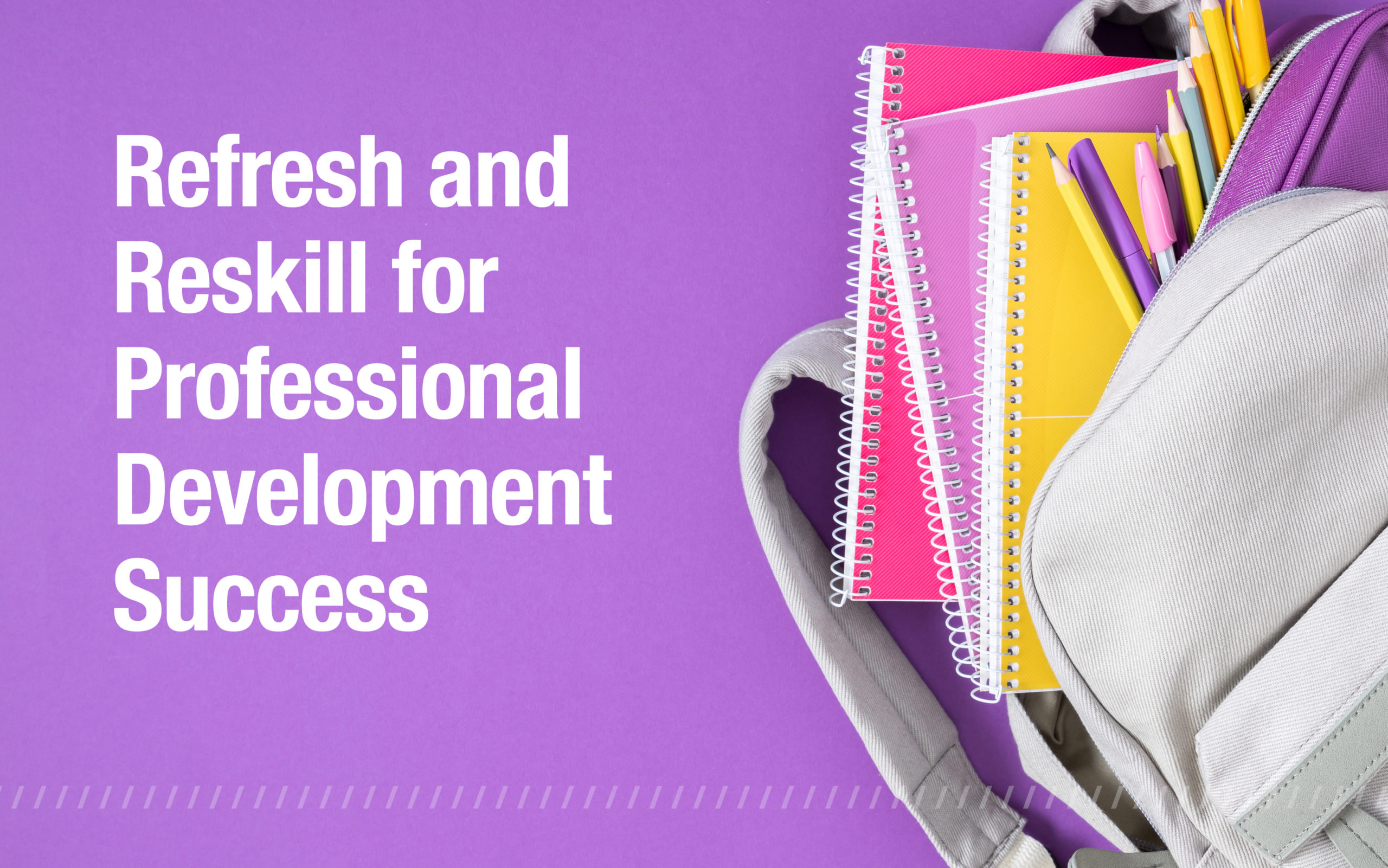Learning Goals: Why They Matter for Skill Development and Career Success
Even though many event and meeting professionals have been out of the classroom for years, it’s hard not to think of the year in semesters. With the unofficial end to summer approaching, back-to-school is all around us — from school supply promotions and retail clothing deals to packs of new pencils and new notebooks waiting to be filled.
But the back-to-school season isn’t just limited to students. As working professionals, this time of year is a good opportunity to learn new skills, reinforce and refresh existing skills, and participate in learning experiences to gain additional credibility among clients, employers, and colleagues.
To be competitive in the shifting job landscape, whether employed or looking for a new opportunity, investing time, energy, and money in professional development is paramount to future success. Organizations are looking for individuals among their current employee roster and during the recruitment process who can help the company dynamically adapt to the rapid speed of workplace change and shifting economies.
According to an Association for Talent Development article, Learners Are Made, Not Born, professionals can get better at learning and investing in their professional development by creating strategies to overcome barriers to succeed at learning. If you’ve ever felt derailed in your learning process, it could be because you haven’t developed a learning strategy, goal, or clear objectives to succeed and achieve your desired learning outcomes.
Define Your Learning Goals
The first step to successful learning is defining and identifying your learning goals. Start by:
- Determining the skills and competencies needed
Investigate and research open positions at your organization or other organizations, review career architecture models and look for role competency models that your organization may have developed.
During your next one-to-one meeting with your manager, ask the top three skills you can master in your current position that would benefit the department or organization. Talk to your mentors and leaders in other departments and ask them what skills are most important.
- Assessing skills and competencies
Next, create a list of your skills, characteristics, and competencies. Because we’re not 100 percent perfect at every skill, determine a way to score yourself in each area so you can see where you have mastery and where there is room for improvement.
Now, compare your list to the research on what the organization is looking for in employees in your role or at your organization. How do the two lists match up? Are there skills the organization is looking for that are not on your skill list or are low on your list? These are the skills and competencies you need to master. - Creating learning goals for your skill development
Using your list, begin to formulate learning goals. Develop a goal for each skill or competency and make them SMART (specific, measurable, attainable, relevant, and time-bound). With SMART goals in place, you can research the resources available to tackle that skill development goal and make the learning process more actionable, enjoyable, and ultimately successful.
You might consider taking an online course, joining an association, participating in webinars, reading trade publications, articles, and books, or a combination of these tools, as a part of your skill development work.
Investing in your development and becoming a better learner is necessary for employees at all levels. Identifying your specific areas of skill development need and creating SMART goals around each area increases your chances of success and ensures that your investment of time, energy, and money in your learning pays off.
Ready to start a new learning journey during this year’s back-to-school season?
The Event Leadership Institute has a 180+ video on-demand learning library, event industry trend-forward webinars, virtual summits, white papers and eBooks that can be a part of your learning strategy.
Add to your digital resume by joining our over 5,000 credentialed learners who have taken our multi-week professional development courses. Upcoming courses starting soon include:


